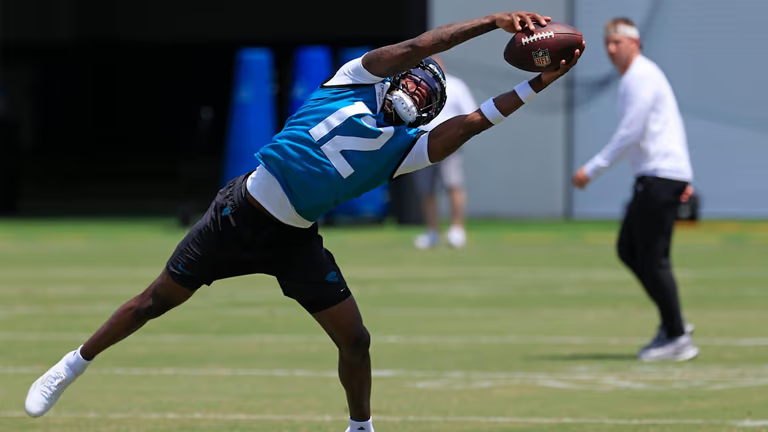Travis Hunter is making waves in the NFL, bringing a unique blend of charisma and skill that sets him apart from the crowd. His journey into the league, especially with the Jacksonville Jaguars, hints at him redefining the financial playbook for rookies.
Hunter's rookie deal is set at four years for a hefty $46.65 million, with an additional fifth-year option for first-round picks. But when it comes to Hunter, it's not just the standard contract worth noting.
Thanks to his enormous potential on the field, he's in line for some unprecedented earnings, all thanks to performance-based pay (PBP) bonuses.
Why is this PBP so critical? Well, Hunter's projected to lead the league in overall snaps, and that could mean his bonus tops any player in that category.
Dan Graziano estimates his PBP could fall between $300,000 and $400,000, which marks a potential record. To give some perspective, last year's second overall pick, Jayden Daniels, made more than $177,000 in PBP.
The Jaguars won’t be holding back his snap count to save money either; the PBP pool is uniform across all teams, and it needs to be fully utilized.
Hunter's performance-based earning potential is just one piece of the larger financial puzzle the Jaguars must solve soon. As they look ahead to securing Hunter for the long term, they'll be navigating the complex waters of his second contract.
The earliest they can lock him down beyond his rookie contract would be after his third season in 2027. By then, the Jaguars will be transitioning back to Jacksonville, unveiling an impressive $1.4 billion stadium renovation.
But how they handle Hunter's contract will be just as crucial as their logistical moves back home.
A key challenge will be determining Hunter's value based on where he plays most of his snaps — a vital consideration due to cap constraints. The Collective Bargaining Agreement uses the position with the most snaps to set salaries for options and franchise tags, and this could significantly influence what the Jaguars offer Hunter in the future. Wide receivers and cornerbacks, after all, command different pay scales.
The Jaguars' strategic deployment of Hunter during his rookie deal could impact their financial commitments down the road. Consider this: if Hunter logs more snaps as a wide receiver, preparing for a heftier fifth-year or franchise tag is inevitable.
Graziano's insight on the delicate balance shows the importance of precisely tracking Hunter's split between positions. For instance, if he plays even one snap more at cornerback than at wide receiver in a season, it could reduce his fifth-year option salary significantly.
Jacksonville's front office, led by General Manager James Gladstone, will be following Hunter closely, not just for his on-field impact but to make informed financial decisions that could redefine how versatile players are valued in the league.


